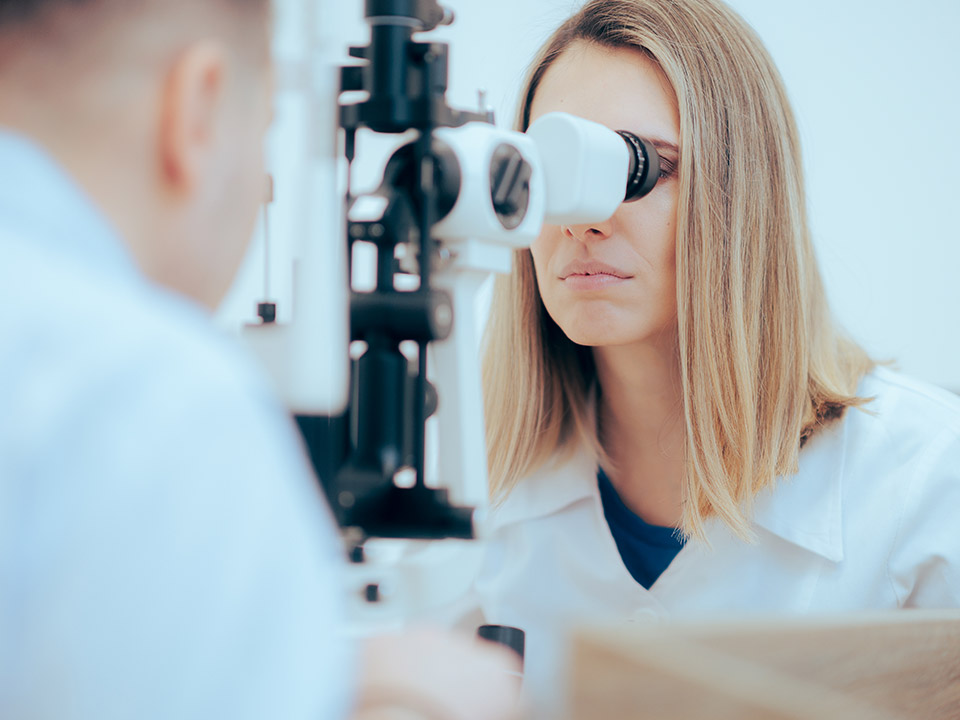The Difference Between Ophthalmologists and Optometrists

Eye care is an essential aspect of health care, focusing on maintaining eye health and correcting vision issues. When seeking eye care, it’s important to understand the difference between optometrists and ophthalmologists – the two primary types of eye doctors. Though both play a crucial role in providing eye care, their training, responsibilities, and areas of expertise differ significantly.
Optometrist: Primary Eye Care Providers
Optometrists, holding a Doctor of Optometry (OD) degree, are primary eye care professionals. Their education typically involves four years of optometry school, preceded by an undergraduate degree. Optometrists are well-versed in performing eye exams and vision tests, diagnosing certain eye conditions and abnormalities, prescribing glasses and contact lenses, and providing routine eye care.
Their role primarily involves performing eye exams, detecting certain eye abnormalities, and prescribing medications for certain eye diseases. Optometrists play an important role in providing eye and vision care, especially in detecting early stages of eye diseases. However, they cannot perform eye surgery.
Ophthalmologist: Medical and Surgical Eye Care Specialists
Ophthalmologists are medical doctors specializing in eye and vision care. They have completed four years of medical school, followed by a residency in ophthalmology, which typically lasts about four years. This extensive training allows ophthalmologists to provide a wide range of eye care, from prescribing glasses to performing complex eye surgeries.
Their expertise covers the diagnosis and treatment of eye diseases, surgical eye care, and management of complex eye conditions. Ophthalmologists can perform laser eye surgeries and other surgical procedures for treating various eye diseases. They play a critical role in the medical management of eye diseases and in providing surgical eye care.
Differences in Scope and Training
The key difference between an optometrist and an ophthalmologist lies in their training and the scope of their practice. While optometrists are eye care professionals focusing on vision care and routine eye exams, ophthalmologists are medical doctors specializing in a broader range of medical and surgical eye care.
Optometrists spend four years in optometry school, learning about various aspects of eye health, including prescribing glasses and contact lenses. In contrast, ophthalmologists spend at least eight years in medical training, which includes medical school and a residency. This extensive training equips them to perform medical and surgical interventions for eye conditions.
When to See Each Type of Eye Doctor
For routine eye exams and vision tests, or for prescriptions for glasses or contact lenses, an optometrist is the right eye care professional to visit. They can also manage common eye problems and treat certain eye diseases with medications.
For more complex eye conditions, surgical treatment, or management of diseases of the eye, an appointment with an ophthalmologist is necessary. They can perform a wide range of surgical procedures and manage complex cases that go beyond the scope of optometry.
Conclusion
Both optometrists and ophthalmologists play a vital role in providing eye care. Understanding the difference between these two types of eye doctors is crucial in seeking the right eye care professional for your specific needs. Whether you’re looking for routine eye care, vision tests, or need medical or surgical intervention for an eye condition, knowing the difference between optometrists and ophthalmologists ensures you get the appropriate care for your eyes.




